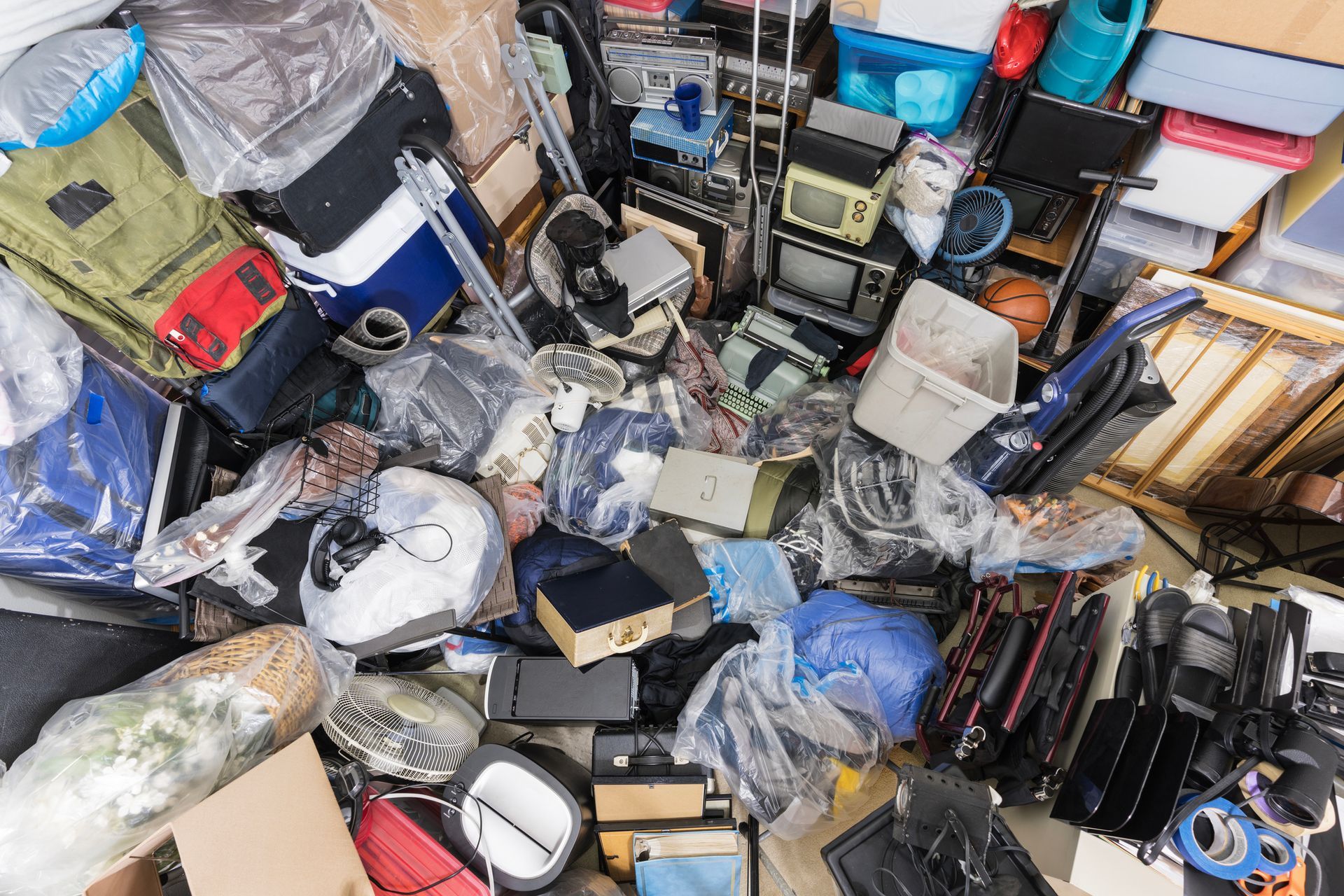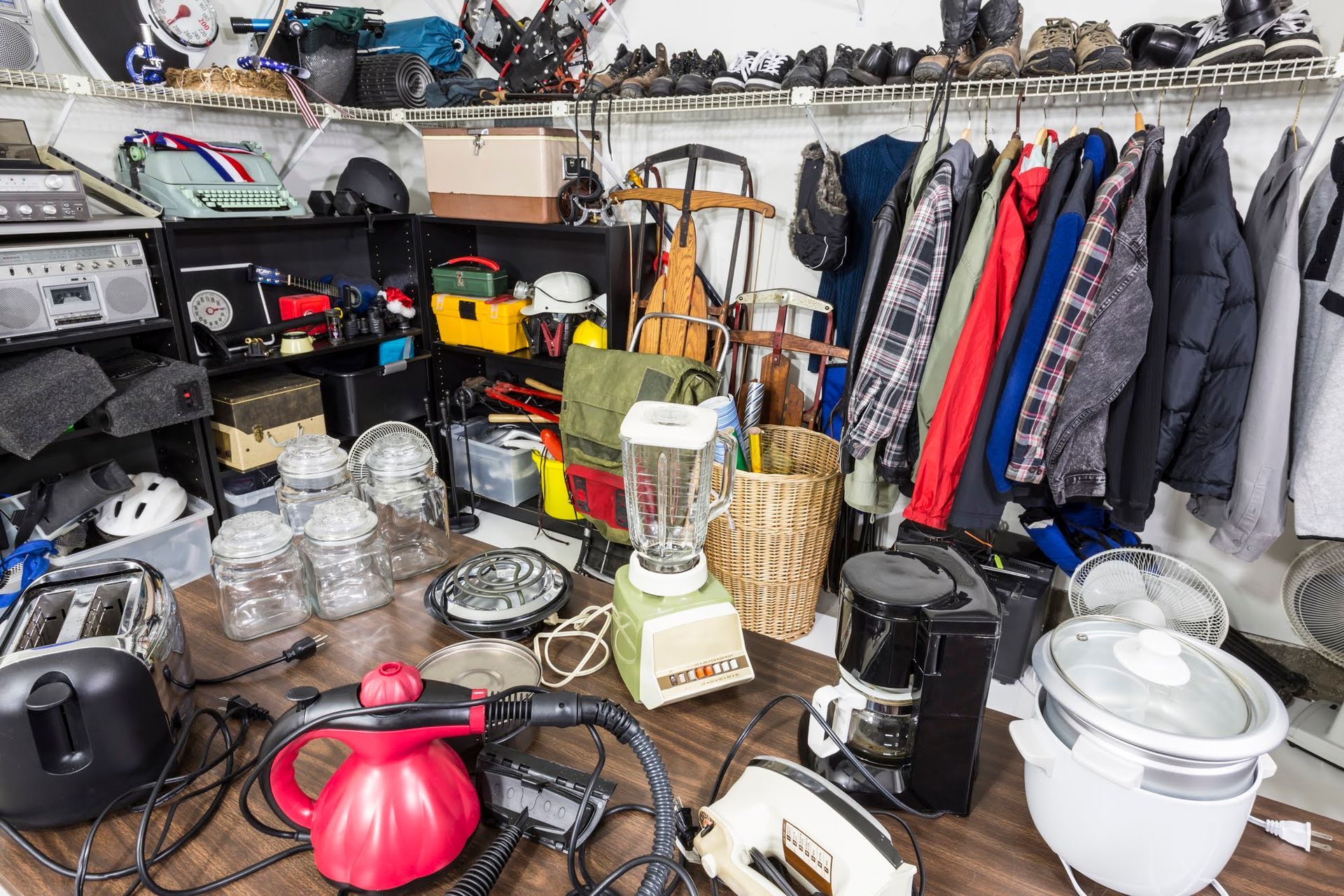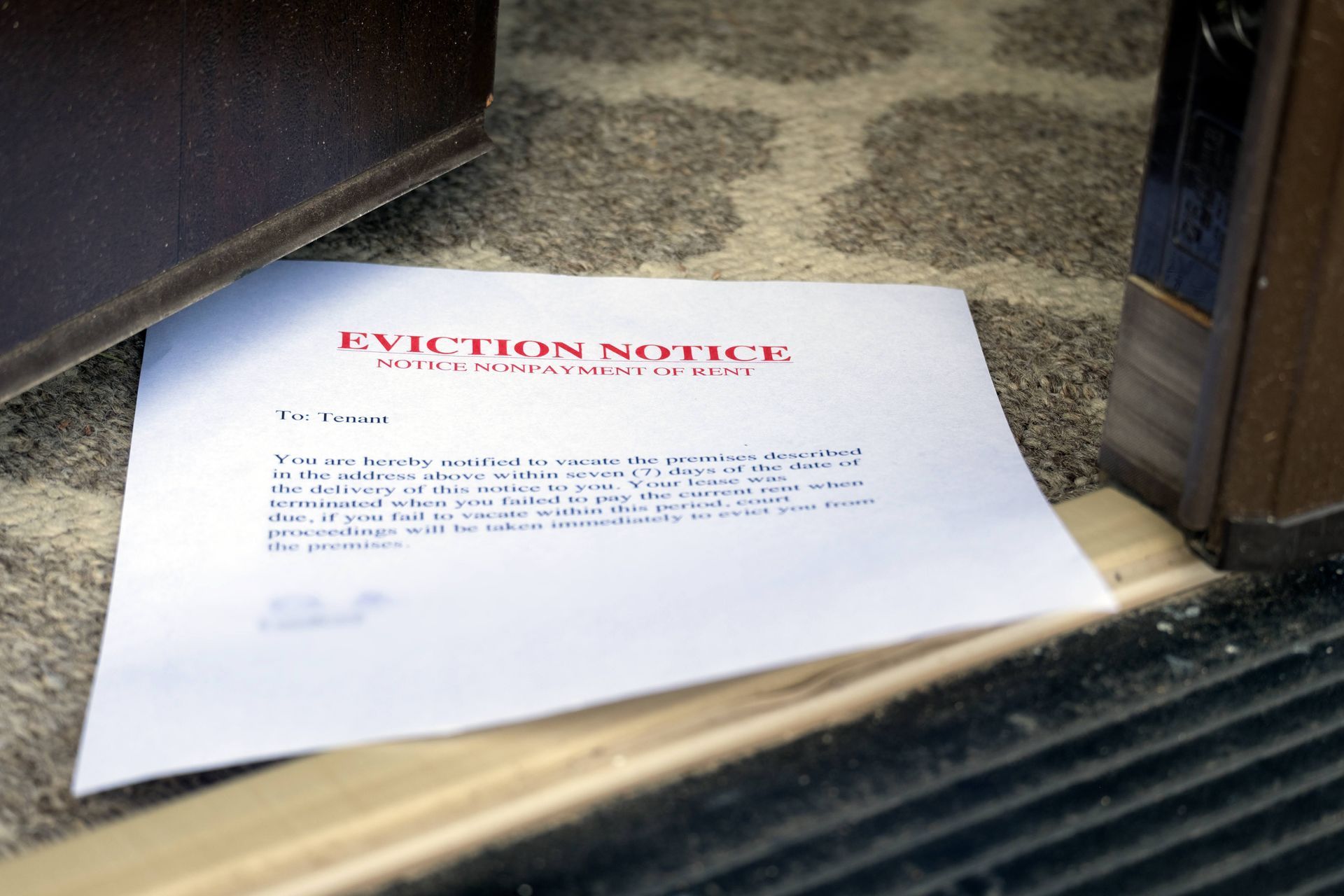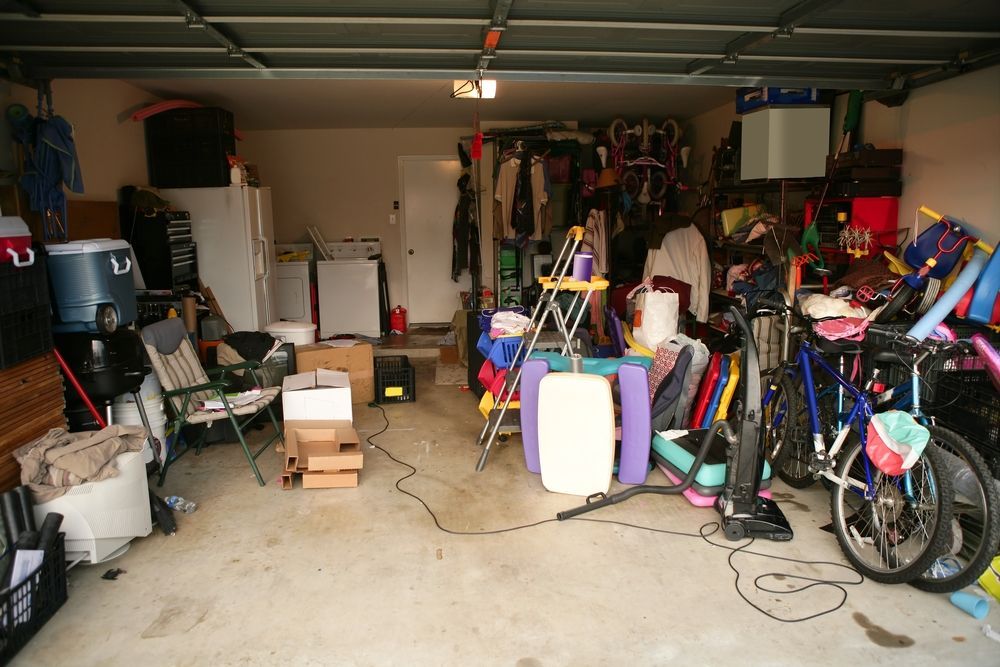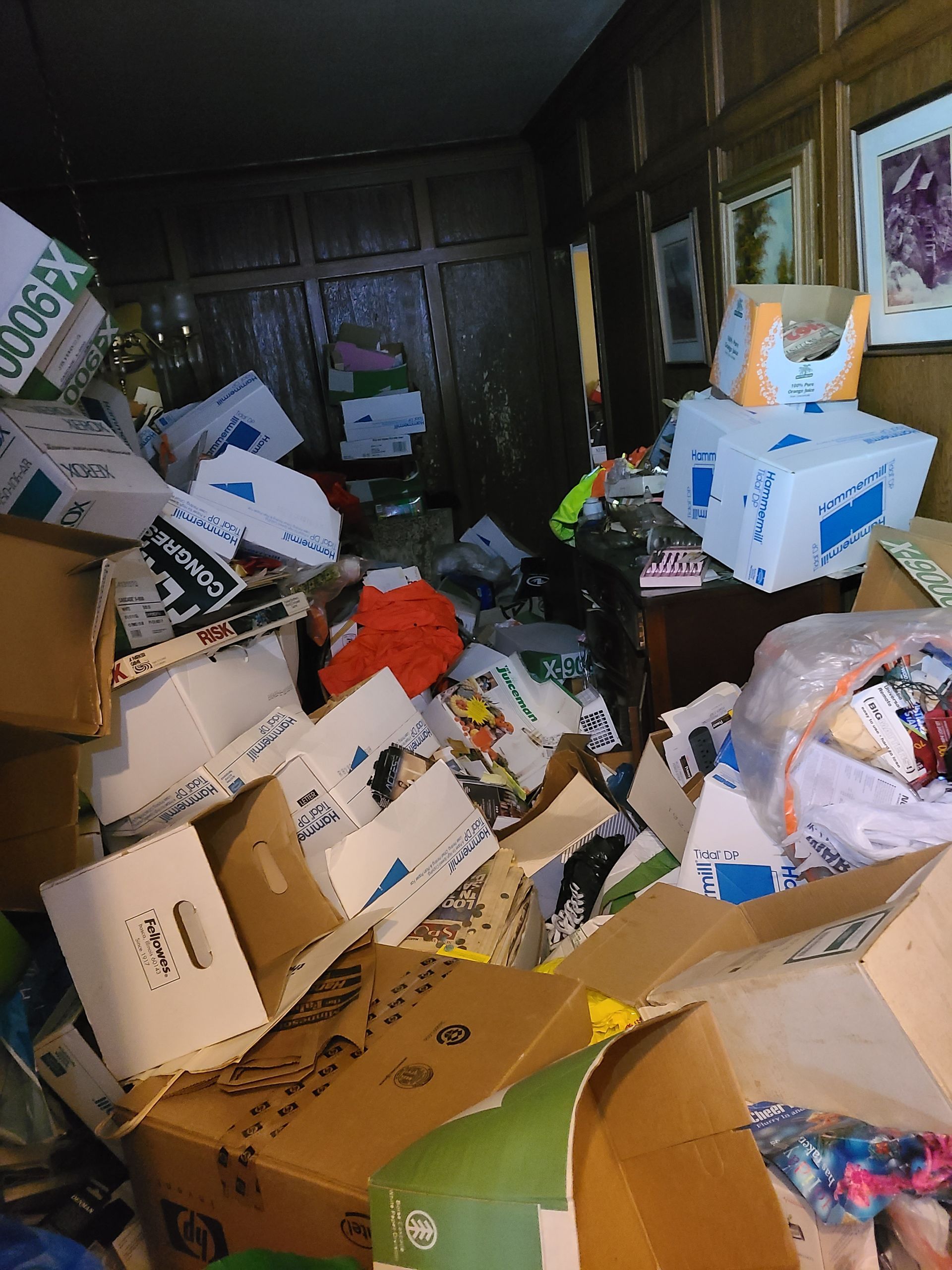NW INDIANA
(219) 924-5865
SW SUBURBS
(708) 460-5865
SOUTH SUBURBS
CHICAGO
(312) 265-1161
Get A FREE estimate today!
Recognizing the Signs of Hoarding
You're noticing changes in your loved one's living space. Clutter seems to be taking over, and it's becoming difficult to navigate rooms. Could it be that they're just a bit messy, or is there something more serious happening? You're right to be concerned—these could be signs of hoarding. Hoarding is more than just a messy habit; it's a psychological condition that can deeply impact a person's life.
Recognizing the signs early can make a huge difference in getting your loved one the help they need. In this article, we'll help you understand the telltale signs of hoarding.
Increased Clutter in Living Spaces
One of the most evident signs of hoarding is an increase in clutter within your loved one's living environment. You might start noticing rooms or spaces in their home increasingly filled with items that might seem trivial or unnecessary to others.
It's essential not to confuse normal messiness or a slightly disorganized lifestyle with hoarding. We all have those moments where dishes pile up, or laundry doesn't get done. However, a consistent, escalating clutter that disrupts normal living conditions could be an indicator of hoarding.
For instance, your loved one might start having difficulty moving around their home due to the amount of stuff accumulated. Basic activities such as cooking, bathing, or even just walking around might become physically challenging. When it appears like garbage removal or even basic house cleaning seems impossible for your loved one due to the excessive clutter, it's likely more than merely being messy.
Difficulty Discarding Items
One of the core traits of hoarding is difficulty in discarding items, even when their usefulness has clearly passed. You may notice your loved one struggling to let go of items considered trivial or garbage by others. The thought of garbage removal may cause them immense stress, triggered by a deep-seated fear of possibly needing the item in the future.
Their inability to discard items is not due to a lack of organization or laziness. Instead, it's rooted in emotional attachment or an excessive sense of responsibility towards possessions. They may express genuine distress at the idea of parting with their items, further contributing to the clutter in their living spaces. Observing such behavior in a loved one might be a sign they're grappling with hoarding tendencies.
Denial and Defensiveness
A paramount sign that a loved one’s stockpiling behaviors have crossed into hoarding territory is their reaction when confronted. Denial is a common defense mechanism employed by hoarders. They'll often refuse to acknowledge there's a problem at all.
Faced with concerns about their hoarding, your loved one may dismiss their behavior as merely a unique method of organization or an overly passionate hobby. Strong emotional responses or irrational justifications signify they're protecting their hoarded items, pushing your worries aside discreditably.
Defensiveness is another alarming red flag to watch out for. When you approach your loved one about potential garbage removal, they may react extremely negatively. This defensiveness can manifest in myriad ways. They might react aggressively to your suggestions or seem overly anxious and stressed at the mere thought of parting with their precious accumulations.
Impact on Relationships
Understanding how hoarding affects relationships is an integral part of recognizing the deeper issues. It's not just about garbage removal; it's about the emotional turmoil hoarding can cause in personal relationships.
Family and friends often find themselves burdened with responsibilities associated with a hoarded haven. They are thrust into roles of caregivers, organizers, cleaners, and even mediators. Often, this imposition translates into strained relationships.
The stress of living in a hoarded environment can also impact those residing in the same household. The constant mess and clutter often result in overwhelming stress, negatively affecting the mental health of cohabitants.
Recognizing hoarding in your loved ones isn't a straightforward process. It's more than just a cluttered space; it's a complex psychological issue that needs a thoughtful approach. As you navigate this journey, remember that patience, compassion, and understanding are key. Professional help is crucial, not just for decluttering but for addressing the root causes.
If your loved one is struggling with hoarding, consider working with our team of garbage removal specialists at All Clear Clean Out Services. We'll help you handle the junk removal of any hoarding situations.
Contact Information
Phone: 219-924-5865
Chicago: (312) 265-1161
South Suburbs: (708) 333-5865
SW Suburbs: (708) 460-5865
Lake County: (219) 924-5865
Porter County: (219) 477-1020
Toll-Free: (877) 260-9800
Email: allclearcleanoutservices@gmail.com
Address: Chicago, Suburbs, & Northwest Indiana
Contact Information
Phone: 219-924-5865
Chicago: (312) 265-1161
South Suburbs: (708) 333-5865
SW Suburbs: (708) 460-5865
Lake County: (219) 924-5865
Porter County: (219) 477-1020
Toll-Free: (877) 260-9800
Email: allclearcleanoutservices@gmail.com
Address: Chicago, Suburbs, & Northwest Indiana

